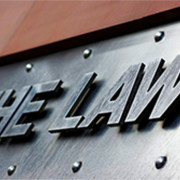Newer v Zimbabwe Newspapers (198) LTD & ANOR 2001 (2) ZLR 508 (S)
Mr LT Biti for the respondent – defamation delict. The second respondent wrote an article which appeared in a newspaper published by the first respondent. The article was critical of a decisions made by the Zimbabwe Broadcasting Corporation It alleged that the decision was talked buy corporations “in house-lawyer”. the article referred to “ the calibre of some of the people who make decision at ZBC” and referred to t”the lawyers stranger and warped thinking”. The declaration was badly drawn. It did not correctly quote the article , and confused factual allegations with innuendo.
the appellant claimed that the article referred to her, as she was the corporation corporate secretary and legal adviser. She stated , though that the decision which was being criticise was made, not by her, but by the corporations board of governors, although she had in her official capacity, signed the press statement in which the decision was announced. the appellants action was dismissed in the High court on appeal:
held, that where an article in a newspaper is said to be defamatory, it is permissible of the court to ignore the words specified in the declaration and look at the whole article.
Held, that further, that to question the calibre of people working for a particular employer necessarily implies that some are of a low calibre. Hone this was followed by reference to the lawyers “strange and warped thinking”, this necessarily implied that this was meant as an example of the work of a low calibre employee. While the word “strange” may not be regarded as defamatory, to refer to the strange and warped thinking of one of those employees is too make a statement calculated to lower that person in the esteem of those who know the remark referee to him or her.
held further that although reference to the appellant was not clearly please it was sufficiently pleaded.
held further that if fair comment is pleaded, the factual allegation on which it is based must be true. The article alleged that appellant made the decision which was being criticised. The evidence establish that the decision was not made by the appellant, even though she had in her official capacity, signed the press statement. Where the allegations are made about the plaintiff, and should have been made about someone else the defence is fair and the comment must fail.


